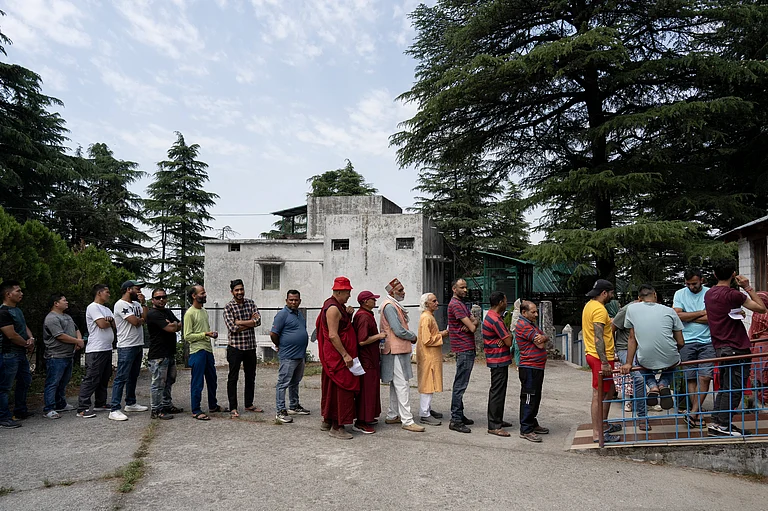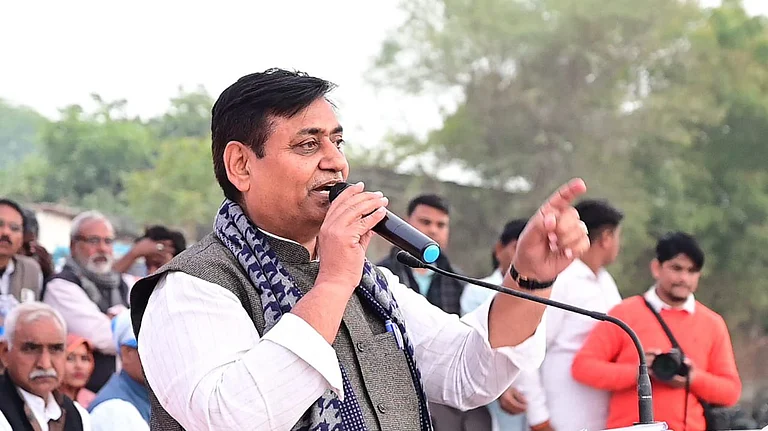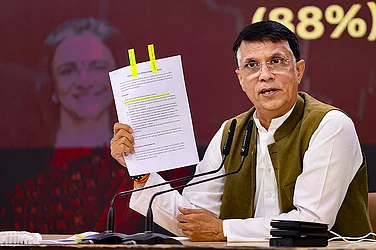While tabling the Waqf Amendment Bill 2024 in Parliament on August 8, 2024, Union Minister Kiren Rijiju stated that the mismanagement of Waqf assets has led to the deprivation of benefits to poor Muslims, as these assets have been captured by some individuals. Additionally, there is a common misconception that Waqf has the power to occupy any property, but facts and history reveal a different story.
Since independence, the idea of Waqf has faced persistent attacks by the state. While the current government is widely known for its actions against Waqf, previous administrations have also been guilty of the same. However, various Hindutva forces, along with the secular camp, have successfully shifted the blame for the failure of Waqf onto its management. This deflects attention from the systematic onslaught by the state on Waqf.
The resistance against the current amendment bill is urgent, but the struggle to protect Waqf will not end here. To safeguard its mission of uplifting the downtrodden, poor, and needy, it is crucial to recognise how these systematic attacks on Waqf have unfolded over time. A historical discussion is essential to look beyond the surface and identify the real culprit behind Waqf’s current weakened state.
Here, we outline key points to understand how the state has suppressed the essence of Waqf and rendered it powerless.
Omission of "Mussalman" from Waqf Act Title
The institution of Waqf initially received statutory recognition during the British era with the enactment of the Mussalman Wakf Validating Act in 1913, followed by the Mussalman Wakf Act in 1923. However, just after Independence, the first systematic assault on Waqf occurred when the word "Mussalman" was removed from the title of the Mussalman Wakf Bill, 1952, as well as from the previous Acts of 1913 and 1923. A new legislation was introduced as the Waqf Act, 1955.
This was not merely a matter of eliminating Muslim identity but also sowed the seeds for eroding the concept of Waqf as a religious and spiritual practice of Muslims. It reduced Waqf to a mere charitable institution, stripping away its deeper significance.
State as an encroacher
There are numerous encroachments on Waqf properties by both private individuals and the state. However, the state's role is particularly pivotal, as it acts as the custodian of Waqf properties. Instead of protecting these assets, the state has often taken adverse possession of them. A recent example of state encroachment involves 123 properties in New Delhi, a case currently sub-judice. Examining the historical context of this issue is crucial to understanding how the state has systematically encroached on Waqf properties.
In 1911, when the British relocated the national capital from Kolkata to Delhi, they acquired Raisina village, then largely dominated by Muslims. Amid strong discontent among the Muslim population, the British spared religious sites and built Lutyens’ Delhi around them. In 1943-45, these properties were transferred by the British to the Sunni Majlis Auqaf for religious purposes. After Independence, the Delhi Waqf Board, the successor to the Sunni Majlis Auqaf, officially notified these properties in the Delhi Gazette. However, the Delhi Development Authority (DDA) and the Land and Development Office (L&DO), both central government agencies, challenged this notification and claimed ownership of these Waqf properties.
In response, the Congress government led by Indira Gandhi formed the Meer Nasrullah Committee, which inspected and identified over 400 properties as Waqf. This led to a lot of hue and cry in the central government as a large number of these properties were under the central government’s possession. If the committee’s recommendation were implemented then central government would have been forced to vacate these properties or to compensate the Delhi Waqf Board. Thereafter to avoid this complication, Indira Gandhi established another committee, led by Mr. Burney. However, the Burney Committee’s report contained many inconsistencies that contradicted the core principles of Waqf. One of the most problematic aspects of the report was its silence on over 120 of the 250 properties it identified as Waqf, many of which had been encroached upon by the central government.
The central government then issued a notification transferring 123 of these properties—primarily mosques, tombs, and cemeteries—to the Delhi Waqf Board on a perpetual lease. This action effectively turned the Delhi Waqf Board into a tenant while the central government retained ownership. This decision fundamentally undermined the concept of Waqf, as Waqf properties are meant to be held in the name of Allah, with no ownership vested in any individual or institution.
On January 12, 2011, the court held that the ownership of the 123 Waqf properties was vested in the name of God, and therefore, the central government could not claim ownership. The court also directed the central government to resolve the matter within six months, maintaining the status quo in the meantime. However, the UPA government neglected this issues, taking three years to de-notify the previous notification without paying any compensation, despite using the properties for nearly 45 years. This action opened the door to fresh litigation, which was quickly utilised by the Vishwa Hindu Parishad (VHP), who challenged the de-notification in the High Court and successfully obtained a stay.
Subsequently, the High Court directed the BJP government to resolve the issue. In 2021, the BJP government formed a one-man committee, but its report has not yet been released. Later, a two-member committee was established, which submitted its report ex parte as the Delhi Waqf Board did not participate, citing their legal challenge against the committee's formation before the Delhi High Court.
This case is just the tip of the iceberg; many other Waqf properties across the country are also being encroached upon by the state. While an exhaustive list of such encroachments does not exist, various government reports have periodically revealed instances of state encroachment in specific regions. For example, the Sachar Committee in 2006 disclosed that the state had encroached upon 316 Waqf properties in the national capital, 60 properties each in Rajasthan and Uttar Pradesh, and 53 properties each in Orissa and Madhya Pradesh.
Muslim leaders have made efforts to address this issue. In 2014, K. Abdur Rahman introduced the Waqf Properties (Eviction of Unauthorized Occupants) Bill, but it had to be withdrawn due to a lack of support. Similarly, in 2022, Dr. Fauzia Khan introduced a Waqf Amendment Bill, focusing solely on the issue of encroachments, but it too was withdrawn.
It is clear that the state, which is supposed to be the protector of Waqf properties, is often the largest encroacher, responsible for the illegal occupation and misuse of these properties.
Enactments at crosspurpose with Waqf Act
In the Waqf Act of 1995, the proviso of Section 6(1) sets a limitation period of one year to file a suit against the survey commissioner’s report on what is gazetted as Waqf property. However, this limitation does not apply to non-Muslims. This provision is not only discriminatory on the basis of religion but also detrimental to the interests of Waqf, potentially encouraging encroachment.
Also, various legislations have been enacted to undermine the provisions of Waqf. Notably, the Rent Control Acts of various states have a very drastic impact on Waqf by providing significant protection to tenants since Waqf properties comes under the purview of these Acts. As a result, Waqf is restricted in fulfilling its purpose, which negatively impacts the entitlements of its beneficiaries.
This case is not only with the Rent Control Acts, there are several other laws also that curtail the concept of Waqf, such as the Thika Act of 1981, which was enacted by the West Bengal assembly. By virtue of this Act, the tenants were made owner of the larger properties across the state; and while government and municipal properties were exempted, this did not extend to Waqf properties. Consequently, Waqf lost a large number of properties. Another examples where legislation was at cross purpose with Waqf are: The Registration of Properties act 1908, The Stamp duty act 1899, Land reforms act, etc.
Unauthorised possession of Archaeological Survey of India
A key aspect of Waqf, as a spiritual and religious institution for Muslims, is that the ownership of its properties is vested in Allah. However, this concept has often been undermined by the state. The Ancient Monuments and Archaeological Sites and Remains (AMASR) Act, 1958 frequently conflicts with the Waqf Act. This legislation reveals much about the intentions of lawmakers when it comes to the protection of Waqf. There have been numerous cases where Waqf properties, even those that serve as places of worship and hold religious significance, are inaccessible to the Waqf Board because they are declared "protected monuments" under this act and handed over to the Archaeological Survey of India (ASI).
While it is understandable to leave historically significant properties under state protection, the ownership should remain with Waqf, with the state only managing maintenance. However, many properties, gazetted as Waqf properties, have been taken over by ASI through this enactment. There are around 570 such Waqf properties across India currently in unauthorized possession of ASI.
The Sachar Committee firmly stated that no law should be used to acquire Waqf properties, a position that underscores the fact that many laws have been systematically designed to undermine the noble purpose of Waqf.
Based on the arguments above, it is clear that the understanding of the problems surrounding Waqf requires a thorough reappraisal. The condition of Waqf should also be examined in the pre-2014 era to understand how so-called secular parties hindered the functioning of the Waqf system. The standard narrative presented by the state, whether under BJP or Congress leadership, has been to shift the blame for the deterioration of Waqf onto its management, thereby obscuring the systematic onslaught by the government. However, history has revealed the truth.
If this issue is viewed as a recent development, finding a real solution to this deeply troubling problem will remain elusive.
(The views expressed here are personal.)
Abdur Raheem graduated from JNU, New Delhi. Currently, Pursuing LL. B from University of Mumbai. Uzair Ali pursuing BA. LL. B from University of Mumbai.










.jpg?auto=format%2Ccompress&fit=max&format=webp&w=768&dpr=1.0)












